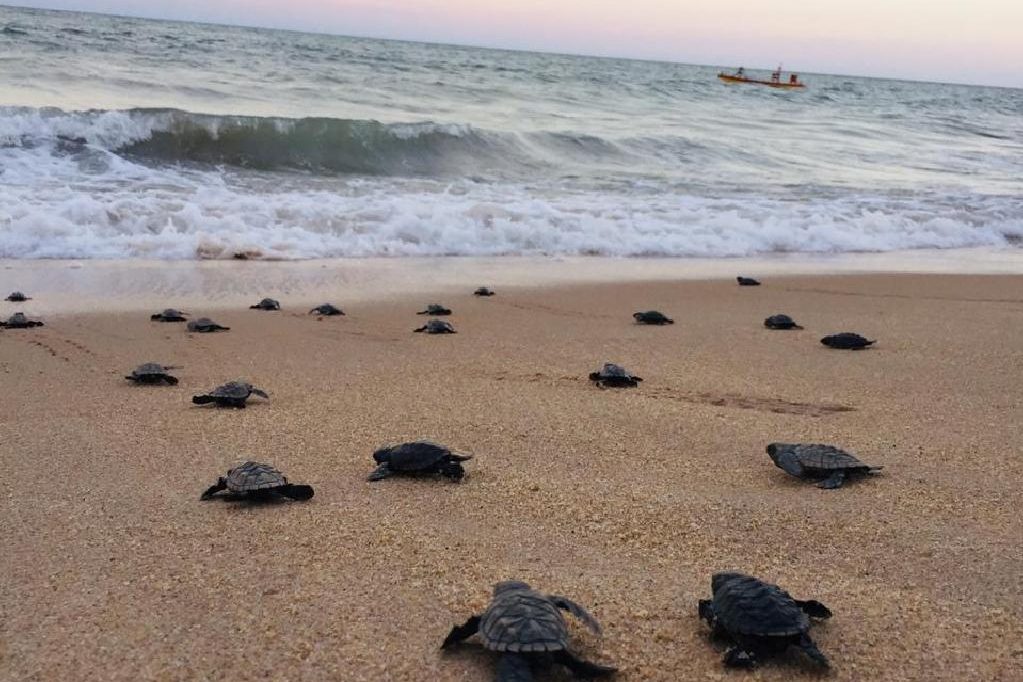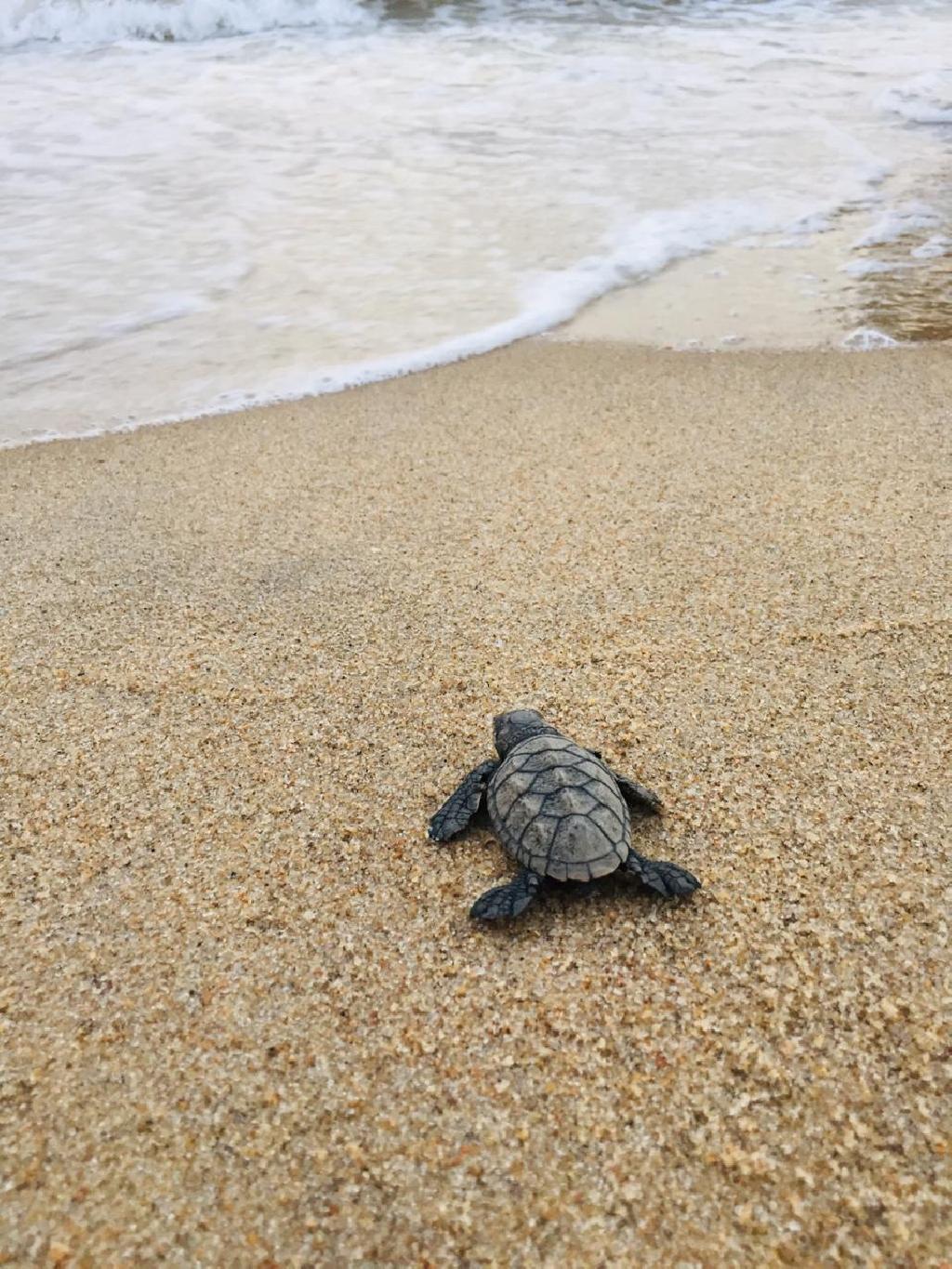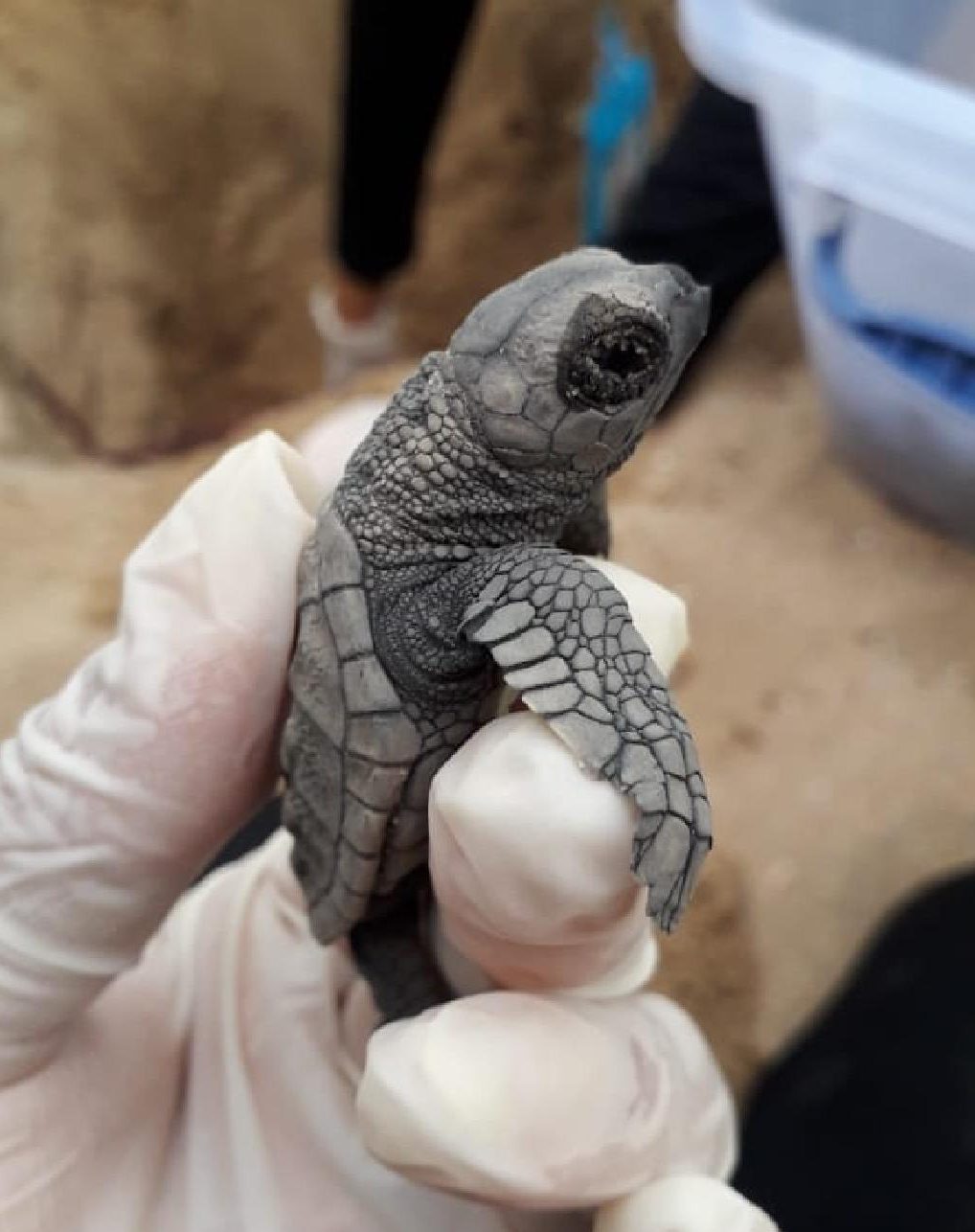There might be a few extra endangered sea turtles in the ocean one day thanks to the novel coronavirus after lockdowns in Brazil left nearly 100 new hatchlings with a clear path across the beach and into the waves.

Wildlife officials were the only humans on the beach in the town of Paulista last week when 97 endangered hawksbill sea turtles hatched in front of their eyes, according to a news release from the city.
The tiny turtles are extremely vulnerable in their first mad dash to the ocean, and many fall prey to hungry birds or over-curious humans who interfere in the process.
However, this latest batch got to make their journey to the water without facing human interruptions, as much of the country has hunkered down to avoid spreading COVID-19, the disease caused by the virus.
A total of 87 green turtles and 204 hawksbill turtles have been born on the beach this year, but the latest batch of hawksbills enjoyed an easier path than the others, according to Herbert Andrade, environmental manager for the city of Paulista.
Hawksbill sea turtle hatchlings are only about five centimetres (two inches) long, but they can grow to be up to 0.8 metres (2.5 feet) long if they survive the treacherous first few years of their lives.

Get breaking National news
The endangered species lives in tropical waters around the globe and ranges from the coasts of Texas and South Florida down to Brazil, according to the U.S. National Wildlife Foundation.
Hawksbill sea turtles lay their eggs on sandy beaches. Those eggs incubate for about 60 days before hatching dozens of tiny turtles that flop toward the beach, using the night sky to navigate their way to the water.
The turtles are critically endangered because of the wildlife trade, according to the World Wildlife Foundation.
Fish and wildlife officials in many countries are trying to save the turtles through a variety of measures, including protecting their eggs on busy human beaches.
That job just got a little easier — at least for now.
—
Questions about COVID-19? Here are some things you need to know:
Health officials caution against all international travel. Returning travellers are legally obligated to self-isolate for 14 days, beginning March 26, in case they develop symptoms and to prevent spreading the virus to others. Some provinces and territories have also implemented additional recommendations or enforcement measures to ensure those returning to the area self-isolate.
Symptoms can include fever, cough and difficulty breathing — very similar to a cold or flu. Some people can develop a more severe illness. People most at risk of this include older adults and people with severe chronic medical conditions like heart, lung or kidney disease. If you develop symptoms, contact public health authorities.
To prevent the virus from spreading, experts recommend frequent handwashing and coughing into your sleeve. They also recommend minimizing contact with others, staying home as much as possible and maintaining a distance of two metres from other people if you go out.
For full COVID-19 coverage from Global News, click here.








Comments
Want to discuss? Please read our Commenting Policy first.